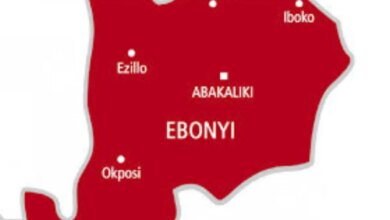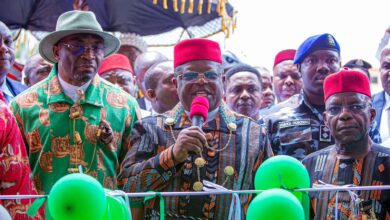CNPP, civil society coalition reject Tinubu’s $1.75bn World Bank loan

The Conference of Nigeria Political Parties, CNPP, and the Coalition of National Civil Society Organisations, CNCSOs, have condemned the Federal Government’s plan to secure a fresh $1.75 billion loan from the World Bank.
The civic groups warned that the move could ignite widespread public anger and deepen the country’s economic woes.
In a joint statement issued on Wednesday, the two groups described the loan proposed by President Bola Tinubu’s administration as “reckless, insensitive, and a betrayal of the Nigerian people”.
The two organizations questioned the rationale behind fresh borrowing, especially in light of the government’s recent claims of record-breaking revenue collection.
“This plan not only undermines the credibility of the government but will further plunge Nigerians into hardship while shattering hopes for any meaningful economic recovery,” the statement read.
The groups pointed to official data indicating that Nigeria recorded N20.59 trillion in revenue between January and August 2025 a 40.5% increase from the same period last year with non-oil sources contributing 75% of total collections. They argued that, under such circumstances, the government’s appetite for fresh debt was unjustified.
“Just days ago, the President boasted that the 2025 revenue targets had been surpassed ahead of schedule, and that Nigeria would no longer depend on borrowing.
“This U-turn confirms the duplicity that now defines this administration’s fiscal direction,” said James Ezema, CNPP’s Deputy National Publicity Secretary, and Alhaji Ali Abacha, National Secretary of CNCSOs, who jointly signed the statement.
Rather than taking on more debt, the groups urged the government to focus on recovering stolen public funds, which they said were being looted through a network of cronies, contractors, and corrupt officials.
They called for the immediate establishment of a high-powered presidential judicial panel to audit past and present loans, trace diverted funds, and return looted assets to the Federation Account.
They added that unless such steps are taken, “the Tinubu administration risks being seen as complicit in the corruption it promised to fight”.
The statement also painted a dire picture of the everyday struggles of Nigerians, noting that the removal of fuel subsidies had triggered a chain reaction of inflation, high transportation and food costs, and deepening poverty. The groups criticised rising electricity tariffs, excessive taxation, and what they called “policy-induced suffering” for ordinary citizens.
“A barber or hairdresser buying N5,000 worth of fuel now pays a N500 petroleum tax, even though they have no public power supply. There’s also a punitive N50 charge on every N10,000 bank transfer. These measures disproportionately hurt the poor,” they said.
They also linked the economic pressures to worsening public health, rising incidents of sudden deaths, family breakdowns, and a growing wave of youth emigration known locally as the “japa” syndrome.
“People are dying from untreated illnesses and hunger. Families are collapsing under the weight of hopelessness, while many young Nigerians are turning to fraud or fleeing the country,” the statement noted.
On the morality of the proposed loan, the CNPP and CNCSOs criticized what they called the extravagant lifestyles of political leaders.
“It is immoral for leaders flying private jets and enjoying lavish allowances to keep enslaving the people with loans whose benefits never reach the masses.”
They warned that with debt servicing already consuming the bulk of national revenue, new loans would only worsen the situation without delivering any real economic benefits.
“The current path is unsustainable and dangerous. If the government continues in this direction, the patience of the masses may soon run out,” the statement warned.
Reiterating their opposition to the $1.75 billion loan, the groups concluded with a demand for fiscal discipline and anti-corruption reforms.
“Nigeria does not need more loans to function it needs leadership that is willing to recover stolen wealth, curb waste, and invest honestly in job creation and infrastructure. Until this happens, no new borrowing,” the statement added.





